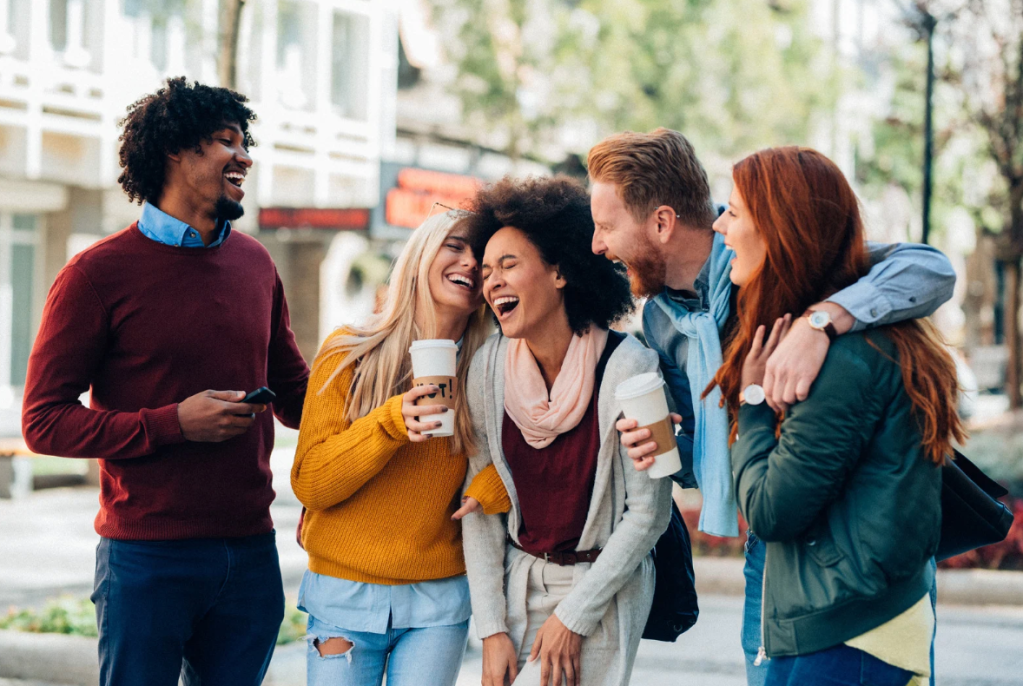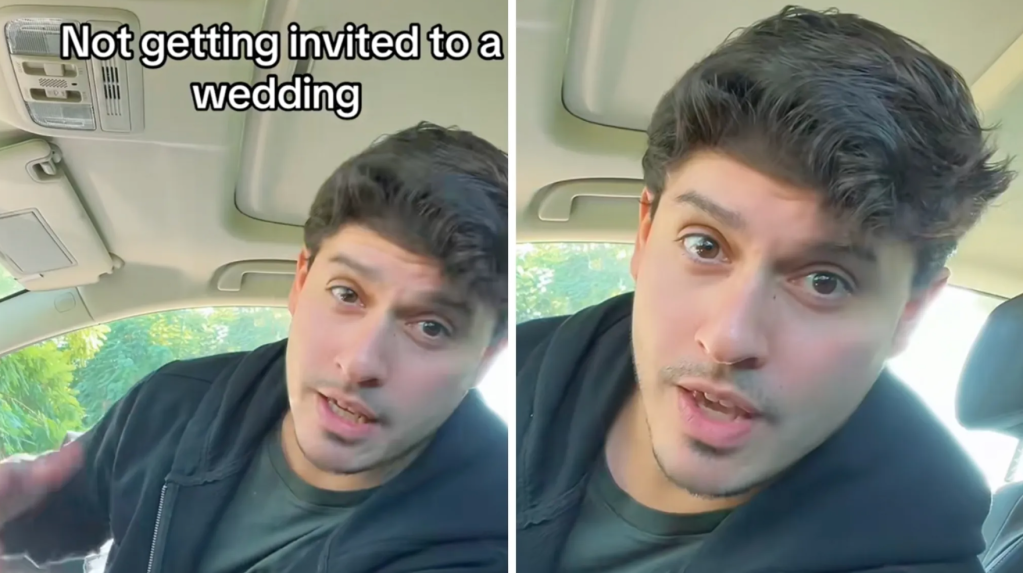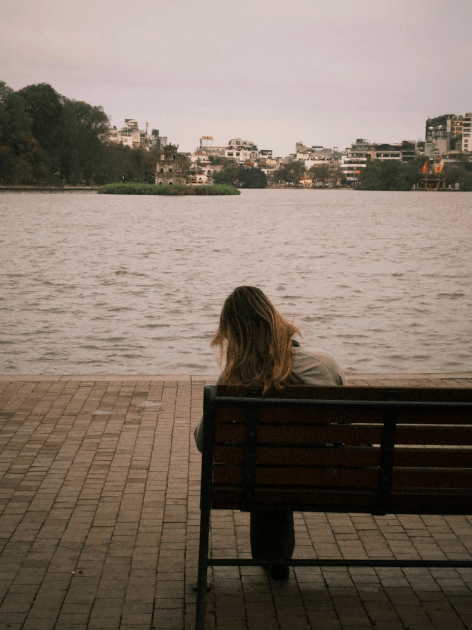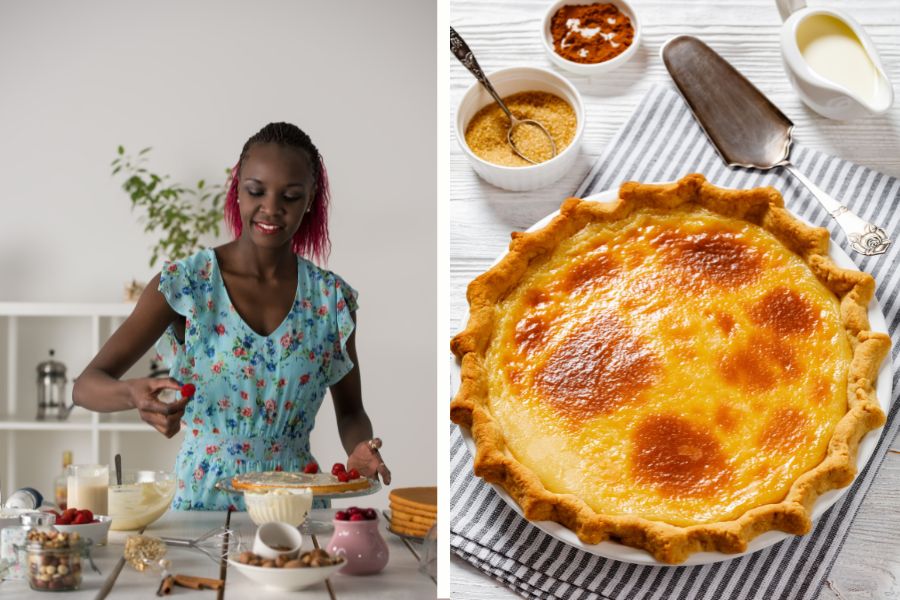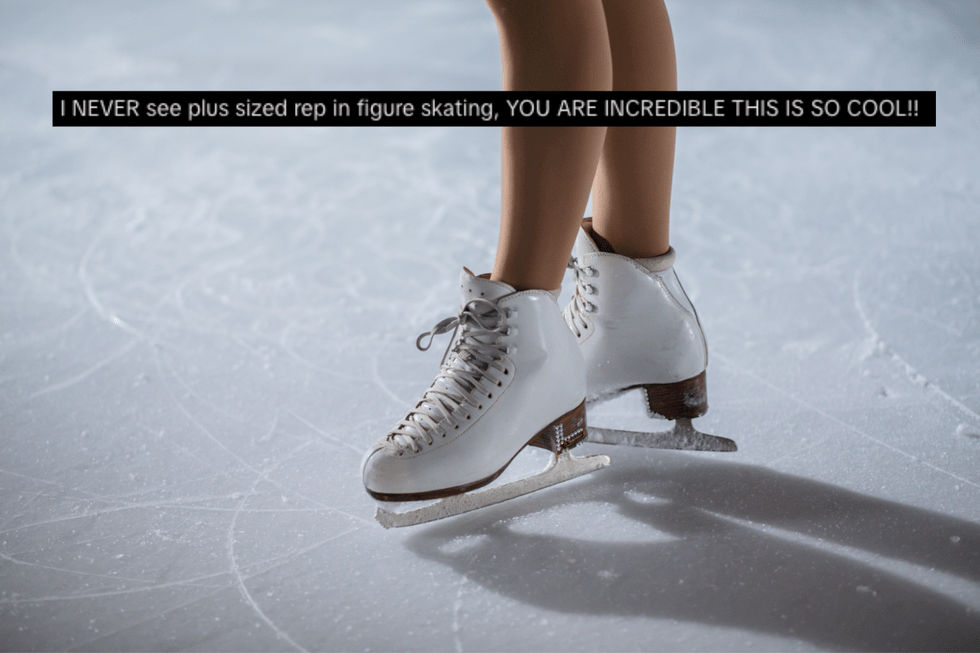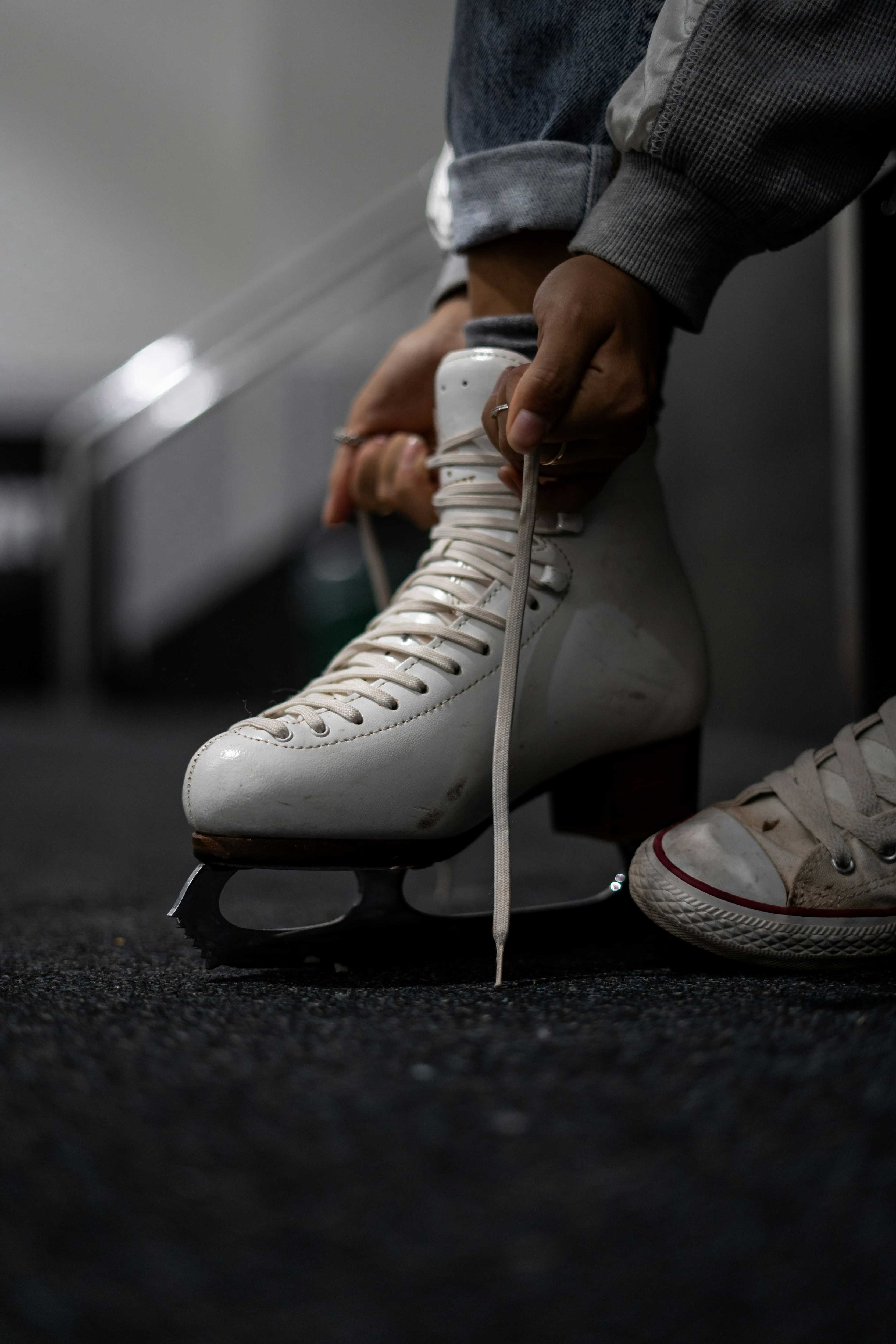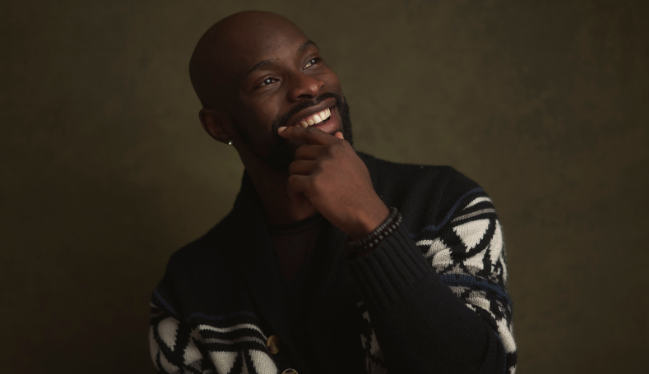I am regularly the only black kid in the photo. I have mastered the well-timed black joke, fit to induce a guilty “you thought it but couldn’t say it” laugh from my white peers. I know all the words to “Mr. Brightside” by the Killers.
I am a token black friend. The black one in the group of white people. This title is not at all a comment on the depth of my relationships; I certainly am blessed to have the friends that I do. But by all definitions of the term, I am in many ways its poster child. And given the many conversations occurring right now around systemic racism, it would feel wrong not to use my position as a respected friend within a multitude of different white communities to contribute to the current dialogue. I believe my story speaks directly to the covert nature of the new breed of racism — its structural side, along with implicit bias — and may prove helpful to many I know who seek a better understanding.
. . .
Growing up, I lived in the inner city of Boston, in Roxbury. I attended school in the suburbs through a program called METCO — the longest continuously running voluntary school desegregation program in the country, which began in the late 1960s. My two siblings and I attended school in Weston, Massachusetts, one of the nation’s wealthiest towns. The place quickly became our second home, and alongside Boston, I would count it equally as the place I was raised. All three of us did very well by all standards. We had all been co-presidents of the school, my brother and I were both football captains, and all three of us went on to top-end universities.
For those wondering about the structural side of systemic racism, I’d ask you to consider a few questions. First: Why does METCO still exist? Segregation ended more than 60 years ago, yet there is a still a fully functioning integration program in our state. We haven’t come very far at all. Many of our schools remain nearly as segregated as they were in the 1960s.
Second: What is the point? Weston improves its diversity. Without us, most of Weston’s students would go through all those years seeing possibly three or four local black faces in their schools (and that’s the reality for many white people in this country). As for the Boston students, most of whom are black, they receive a much higher-quality education. Property taxes, a structural form of racism meant to allow segregation to endure, have ensured that while schools have grown increasingly better in our suburbs, the inner-city schools continue to struggle with resources, attendance, and graduation rates.
Lastly: Why was I able to be so successful? A major criticism of the METCO program is that it doesn’t produce better outcomes for its students than the city schools, so it just acts as a brain drain from the city. I am an exception. I held leadership roles in the school, was an accomplished athlete and student, and went on to what was, at the time, the best public university in the country. What’s easily overlooked, though, is how my circumstances differed from the average student of color coming from the city. I came from a two-parent household. My mother was able to work from home our entire life, so she could take us places when we needed. Compared to other black families, we were relatively well-off financially, which afforded me a car in high school and thus allowed me to be highly involved. I had a stable church and home life and food security. This combination is uncommon for a young black kid in America.
In a piece my brother wrote reflecting on the current situation, he considered whether black privilege was real. He and I have both considered how our differences from the common story of black people made us “privileged.” For instance, our immersion in the white community, our success in school and now in the workforce, and the fact that we grew up in a middle-class black household (highly uncommon in Boston) led us to believe we had somehow transcended the plight of the black man. Yet, what scared us both so much as we watched the videos of Ahmaud Arbery and George Floyd is that we clearly had not. In both cases, it could have been us. There is no escape. There is no level of success that will spare you. We are black men, and that is all that matters to some.
. . .
In the past, I’ve usually stayed quiet on these issues. Often, the pain of diving deep into them was too much to regularly confront. College changed many of my attitudes, but none more so than my full acceptance that racism is alive and well around me.
In college, I sought out more black friends, choosing to room with three people of color because I wanted to grow more connected to that side of my identity. The room afforded me a space to appreciate aspects of black culture and share stories of anger with people who looked like me. Many of my clearest interactions with racism occurred in college. It was there that I began to confront knowledge that roused more frustration within me, such as the war on drugs and its history as a weapon against black communities — although on every college visit, I watched people ingest more drugs and smoke with more impunity than I ever saw in the hood.
The length of my journey makes me inclined to be more patient with others in this process, as it’s taken me this much time to wake up. We should all be reasonably patient with one another, but I would encourage individuals to not be patient with themselves and to treat these issues with the urgency they deserve. The anger on display over the past week should exhibit the need for change.
. . .
So many of my experiences growing up speak to implicit biases against black people. I think of how quickly others in school assumed I had a single mother, simply because my father, much like many of theirs, didn’t visit school often. Or the number of times I’ve heard “you are so articulate” in a conversation where all I’ve shared is my name and other small personal details. Standing alone, each instance may seem insignificant or merely a compliment to my upbringing and education. However, the frequency with which I’ve received that comment tells otherwise. It reveals how a black kid speaking properly is surprising, and further, how it makes me appear worthy of sharing the person’s company.
I also realized that the token black friend is not spared the realities facing a black kid from the hood. One morning, while getting ready for school, I heard my mother scream outside, followed by my brother sprinting down our stairs. In our 150-year-old home, every quick step down the stairs resembled a drumbeat. I followed my brother to find my mom standing at her car, visibly shaken, telling us, “He’s running up the street. He took my phone.” My brother and I, both barefoot, sprinted up our street and two others until we caught the culprit. I jumped on his back to stop him until my brother caught up, at which point Raj chewed him out and we took our stuff back — both too young and inexperienced in the ways of the streets to know we probably should have beat him up. The point is, though, we still had to go to school that day. And I remember being too embarrassed to tell any of my friends about what occurred that morning, thinking it would change for the worse the way they thought about me or where I came from every day.
I started carrying a knife during my junior year of high school. It quickly became a running joke among my core group of friends — whenever someone would say something out of pocket or stupid, we’d say, “Get the knife,” and I’d comedically lay it on the table. What those friends definitely didn’t know is that I carried the knife because I was afraid I might get jumped making my daily walk from the train station to my house late most evenings. How could my white friends from suburbia ever understand that?
. . .
In the wake of the past week’s events, I’ve reflected on my interactions with the police. These interactions lifted the veil of black privilege I thought existed, though it was likely only afforded to me because of my military affiliation.
I was once pulled over in a cemetery, less than one minute after getting back into my car after visiting a friend’s grave, only to be asked, “What are you doing here?” The cop had been parked right by me the entire time, so he obviously just seen me out at a gravestone alone.
“Visiting my friend’s grave before heading back to school tomorrow, sir,” I said.
The officer’s aggressive demeanor changed only after I told him I went to the Naval Academy, at which point we entered a friendly conversation about his days at Norwich. What stuck with me is what he could’ve done in those cemetery back roads without another living person in sight — no witnesses, no cameras.
Another time, when I’d walked back to my best friend’s empty house after a party, I accidentally set off the alarm, bringing the cops buzzing to his door. I wonder if the only reason it went so smoothly is because I quickly identified myself as a member of the military, opening their ears to hear the full story of what was happening. I think of what might’ve happened if they’d mistaken me, holding my military ID in my hand as I walked out the door, for something else.
It’s tough to realize how rarely these possibilities occurred to me when I was younger. When I was pulled over numerous times, often without cause, driving to a hockey game in Weston or parked talking to my white girlfriend, I didn’t consider that the cops might have had it against me. When I did witness these biases, I quickly brushed them off as insignificant.
Early in middle school, I arrived to our high school’s football game with a group of friends, all white, to find three or four policemen standing by the entrance. I greeted them with a “Good evening, officers,” and then quietly said to my friends, “You gotta befriend them so they are on your side later.” My buddies thought it was hilarious, and I had succeeded in making the boys laugh. Looking back, I realize they didn’t understand that I was speaking to something legitimate. I was no older than 12 or 13, and I already understood that the police would not be inclined to help me. It was only funny to my friends because they’d never had those sorts of conversations.
I think back to when my friends never understood why I wasn’t allowed to play with water guns — or any toy guns, for that matter — when I was a boy. I’d be so excited to visit a friend’s house and use their airsoft gun in the backyard. I used to get so frustrated when my mom told us it was “too dangerous” for black boys to do that and that someone would mistake it for a real gun. When I was 16, 12-year-old Tamir Rice was shot and killed while playing with a replica toy airsoft gun. I realized my mom was right.
I think of the way the black girls were treated as second rate in high school. Guys rarely tried to talk to them romantically, and if they did, others discussed it with an undertone of comedy. I never felt this way, personally, but didn’t realize until college that my silence was compliance. I was participating in denying dignity to the black women around me.
This attitude from my white friends didn’t end in high school, either. This past year, I was at a bar in Narragansett, Rhode Island, where I’d quickly befriended one of the guys my friend had brought with him. At one point, I expressed my interest in a girl who had just entered the bar. He asked me to point her out, so I did, also noting that she was black. He responded, “Yeah bro, she’s cute, but you could have one of the white girls here!” I questioned his statement, and he realized it didn’t fly with me. We eventually moved on and continued the night, but I couldn’t get it out of my head. He truly didn’t think anything of it when he said it. And he assumed that I would agree with him. To him, the preference for white women was undisputed, so he suggested it unapologetically. It was especially hard for me because, outside of that statement, there was nothing to suggest he was racist. He had treated me with nothing but love and admiration and accepted me into his crew. It was simply ignorance, which had probably been reinforced countless times. That was difficult to wrestle with.
. . .
These attitudes directly contribute to and maintain systemic racism within our society. Our disparate relationships with the police, along with messages sent to the black males when they “speak properly,” or to black girls about their inferiority (spoken or unspoken), paint an inaccurate picture of what a black person is supposed to be. These attitudes foster the ignorance and apathy that is so rightly being called out right now. They ensure the survival of this corrupt system.
I think of times when my own ignorance let me buy into the insensitivity shown toward the black struggle, often to induce laughs. During a visit to a Louisiana plantation during my sophomore year of high school, I shamefully recall posing for a picture with a noose around my neck. I remember walking around downtown New Orleans later that evening with it around my friend’s neck, me jokingly walking him like a dog. Two black guys on the street, a bit older than us, said to me, “That’s not fucking funny, bro.” I immediately filled with guilt upon recognizing my stupidity, and I struggle even today to understand what made me think either were permissible at the time. Sharing that story relieves some of the guilt, yes, but it also speaks to how being wrapped up in white teen culture led me to buy into, and even spearhead, the insensitivity that is often exhibited toward issues of black struggle that are incorrectly categorized as “in the past.”
If you don’t agree, why did none of my white friends call me out for it? Yes, we were young at the time, but I’d ask: Why didn’t we know any better? We assumed the pain of that type of racism was dead, but we all just witnessed a modern-day lynching on camera.
Then there are the instances most white people will recognize, though they probably never knew how damaging their words were. Every token black friend can recall the times when a white friend chooses to dub you “the whitest black kid I know.” It’s based on the way I speak or dress or the things I’m into, and it’s a comment on me not fitting the image they have of a black person. When I resist accepting such a title, the white person claims it’s a compliment — as if the inherent superiority of whiteness should leave me honored to be counted among their ranks.
More impactfully, it suggests that my blackness is something that can be taken from me. That my identity as a black man fades because I am into John Mayer or I’ve visited the Hamptons. And further, it assumes that my black identity is not something I am proud of. It ignores the fact that the acculturation and assimilation I experienced growing up with all white friends was not voluntary. It suggests that my blackness is a burden, when in fact, minimizing my blackness was most often my burden. Another example: when I am criticized by my white friends for code-switching when I am with my black friends, just because they don’t understand the slang and how it connects black people to a common culture.
The biases are evident; you just need to pay attention. Believe me, because I wasn’t spared from buying into them myself. It wasn’t until I got to college that I began to realize how much subconscious effort I’d put into being as unstereotypically black as possible. Whether in my choices concerning the way I dress, speak, or even dance, I noticed that, without realizing it, I’d habitually quelled aspects of my black identity. And based on that ability, I consistently inflated my self-worth and considered myself superior to my fellow black brothers. I had unknowingly bought into the very biases set out against me.
. . .
I’d emphasize that most white people do not understand their level of ignorance — especially the good ones, who mean well, and that negligence is part of the problem.
Many of the white people I know have no concept of the role they’ve played, passively or actively, in perpetuating these conditions. They have no idea how much we long to hear them speak up for us and to embrace some of the discomfort around these issues with us. Furthermore, the good ones are oblivious to the level of overt racism still out there. I have been among my white friends each time I’ve been called “nigger” by a stranger. And every time, my white friends seemed shocked. They had been misled to believe that kind of overt racism only happened in the past (or in To Kill a Mockingbird). Comfortingly, they always verbally leaped to my defense, and the savior complex within them encouraged them to seek retribution.
In one vivid case, at a bar in Cape Cod, after I’d just finished a conversation with a friend, one guy, not realizing I was still in earshot or aware of my relationship with this friend, came over to him and asked, “You really talking to that nigger?” My friend was stunned but immediately came back at the guy, his anger for me visible. He then came to me, boasting that he has black friends as if that should warrant him a pass.
As much as each situation ruined my night, everything after went well, and I was embraced by a group of allies who wanted to fight for me when they heard that word. I had no further reason to be upset. Yet, probably only the friend who walked ahead of the group with me knows I cried my eyes out the entire walk home, unable to explain how that word garnered so much control over me.
The problematic result of these overtly racist situations is that good white people feel liberated from any responsibility concerning the privilege, structural racism, and implicit biases that do not make them racist themselves, but that they do benefit from. This moment is one of the first times I have felt it was not only okay but encouraged to share these things.
If there is one thing every token black friend knows, it is that we are not to provoke serious discussions of racial issues among our white crowd. We should only offer an opinion on such matters when invited to do so by our white peers. Further, we should ensure that the opinion is in line enough with the shared opinion of our white friends, as to not make it too awkward or ostracizing.
It doesn’t need to be, and shouldn’t be this way. Many of us are eager to share our stories, and we have been waiting for the invitation to do so.
. . .
I am comforted when I see white people call things out for what they are. When my friends and I rented a 16-passenger van for a New Year’s Eve trip to Montreal, we found ourselves held up at the border coming back. The older agent, surveying the passengers, asked how we all knew each other, to which we answered, “We all went to high school together.” The officer then followed up by singling me out, “And how do you fit in here?” What he was suggesting about my place in the group of all white guys was telling enough, and the guys I was with were quick to support me and point it out to their parents when debriefing the trip once we arrived home. If only they knew how often I’d experienced situations like that one. White people should know that we need more conversations about little things like this. It’s not our job to heal the world, but if we can start by getting people to question small interactions and beliefs, we can begin moving toward progress.
The white friends I grew up with have shared with me how thankful they are to have had me in their lives during their developmental years. They wonder what attitudes they might harbor if they hadn’t had a black best friend their entire lives. They arrived at college to befriend kids who had never met a black person in their lives, and they encountered countless out of pocket statements from those individuals.
I am constantly thankful that I grew up with genuine white friends, unlike many of my extended family members. My cousin said to me once, “I don’t like being around white people… I always feel like they hate me.” I was able to learn that, more often than not, that isn’t the case. Still, my cousin points to the overwhelming sentiment that black lives are not accepted or celebrated by white people.
Recent events present a unique opportunity to begin conversations that have been waiting to happen for far too long. To both black and white people, I’d write that understanding is a two-way street. To my white friends, I’d tell you that while that’s true, white people have a longer journey to get to where we need to meet. It is time for white people to muster the courage to call out those comments you hear from your parents or uncles and aunts. The pass has been given for far too long, and every time you don’t speak up, you enable far worse words and behaviors. For those of you who think an old dog can’t learn new tricks, I’d point to the numerous white adults who have texted me this week noting that they have been in their bubble for too long, and asking me to keep sending them content. It’s time to pop the bubble.
My experience as the token black friend has allowed me a unique lens into many of the gaps that currently prevent mutual understanding between white and black people. I have spent so much time in the white community and enjoyed the privileges that come with that, yet I am still affected by these issues. Despite my story’s obvious differences from that of the average young black man, I believe it speaks to the immediate need for change. Additionally, it serves as an example of a genuinely meaningful relationship between a black person and white people and emphasizes the ability of white people to be either allies or enemies.
I will never turn my back on the black community. You’ll bump our music and rep our athletes, but will you stand with us when it’s not convenient? The pain is real. The stories are real. Our call for help is real. My uncle posted on Facebook yesterday, “When the dust settles, I wonder if anything will actually change?” To be honest, I’m not sure how quickly or how much things will change. But I know that one thing is directly within our individual control. You can celebrate black lives by making a choice to inquire about them, to educate yourself, and to question many of the norms around us. You no longer have the excuse of being unaware of your own ignorance. I’d reword my uncle’s post to a question that we should all ask ourselves: “When the dust settles, I wonder if I will actually change?”
“No one is born hating another person because of the color of his skin, or his background, or his religion. People must learn to hate, and if they can learn to hate, they can be taught to love, for love comes more naturally to the human heart than its opposite.” — Nelson Mandela, Long Walk to Freedom
This article originally appeared on Medium and was first shared here on 6.19.20. You can read it here.

